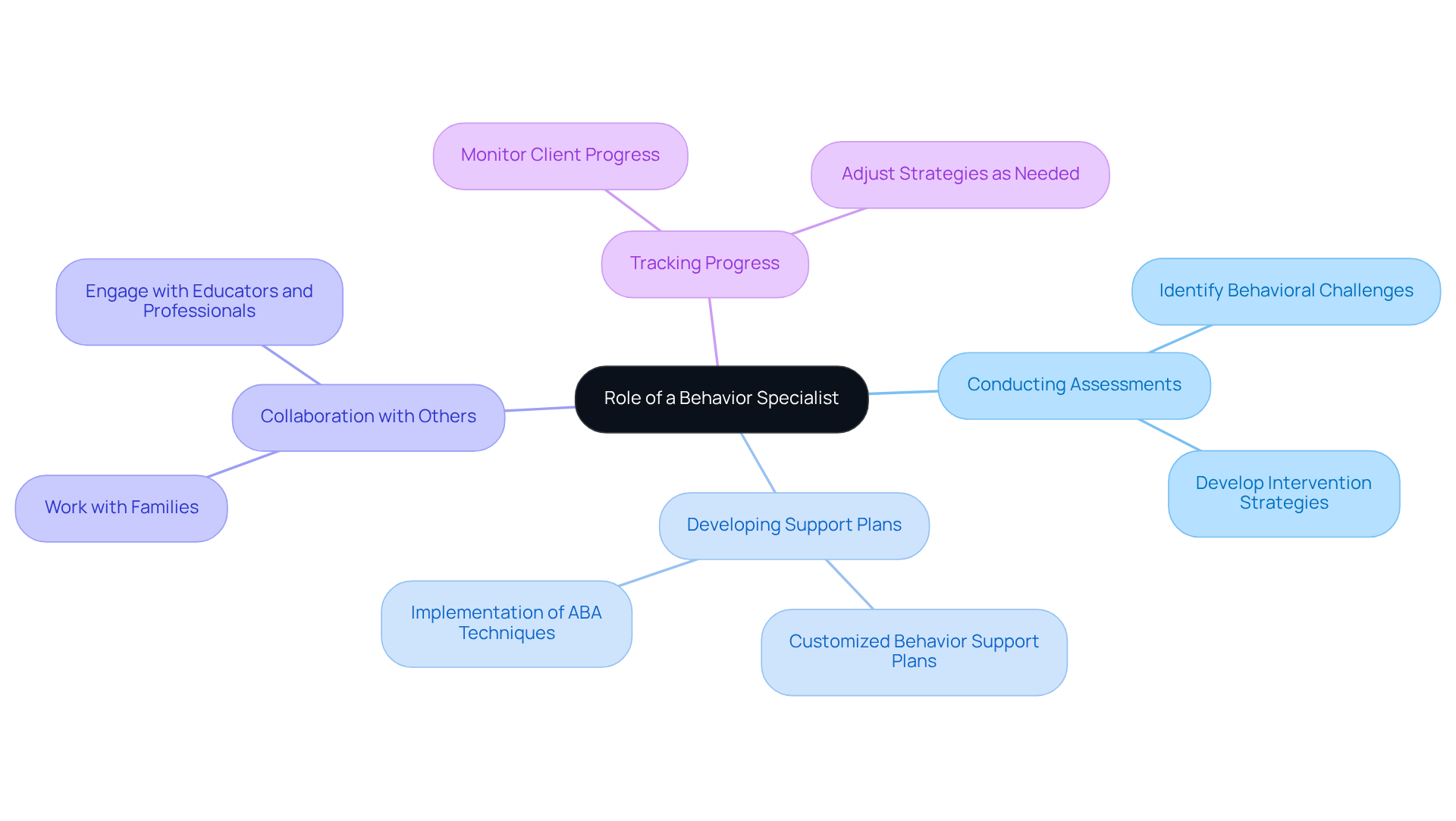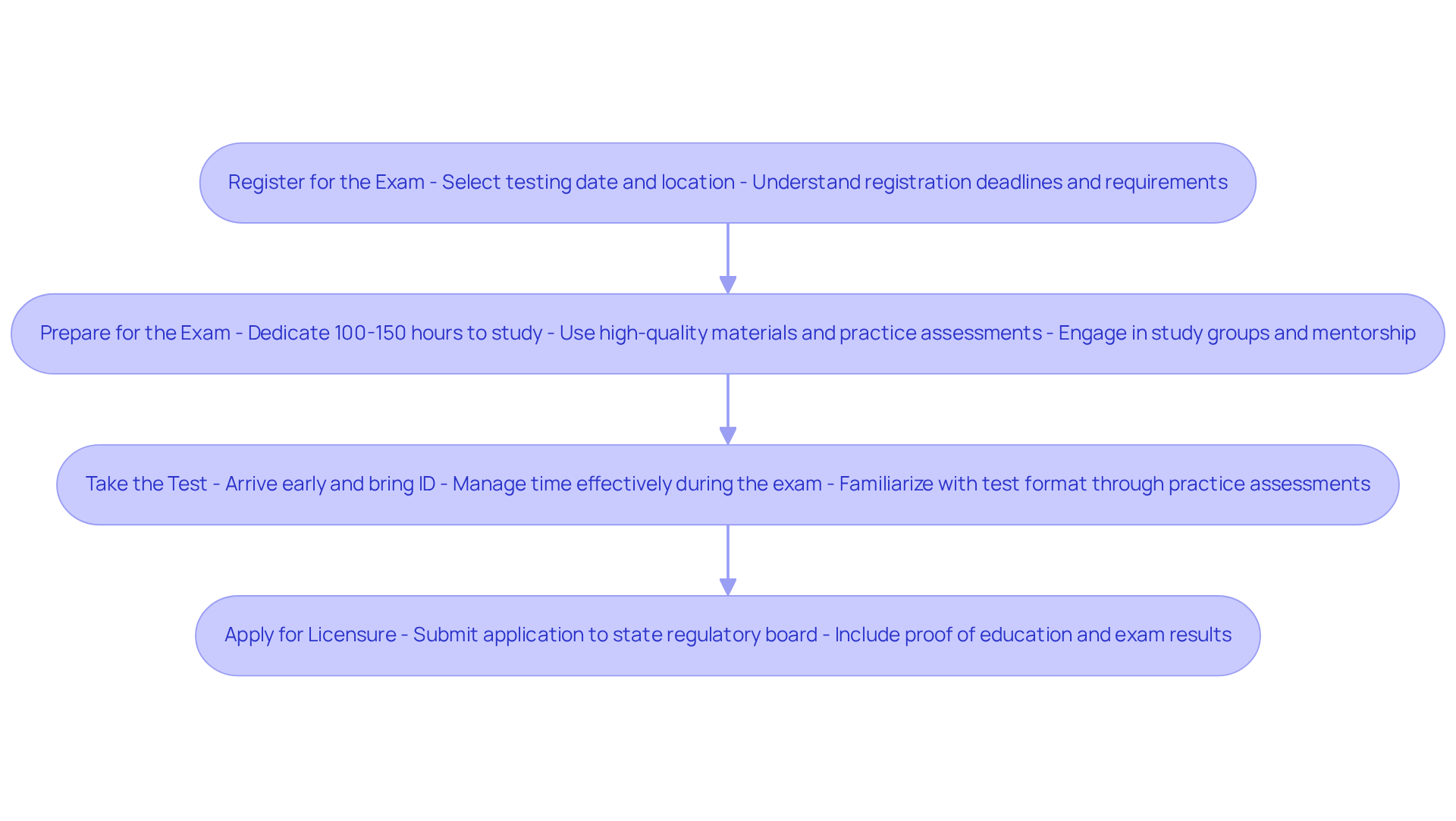October 17, 2025

To achieve Behavior Specialist certification, candidates must complete relevant education, gain practical experience, pass a certification exam, and maintain ongoing professional development. This certification is crucial in a field where the demand for Board Certified Behavior Analysts (BCBAs) is rising.
Education in behavior analysis is foundational, as it equips candidates with the necessary knowledge to excel. Furthermore, supervised experience is essential, ensuring that candidates apply their learning in real-world settings. The necessity of continuing education cannot be overstated; it enhances effectiveness in the role and keeps professionals updated on best practices.
By understanding these steps, candidates can position themselves for success in this vital profession.
Aspiring Behavior Specialists are at the forefront of transformative change, utilizing Applied Behavior Analysis (ABA) to enhance the lives of individuals facing behavioral challenges.
With the increasing demand for Board Certified Behavior Analysts (BCBAs), it is essential to understand what it takes to earn this certification and excel in a field that is both rewarding and challenging.
This guide outlines the essential steps to achieve Behavior Specialist certification, offering valuable insights into the educational and experiential requirements, as well as the certification process itself.
What does it truly take to not only earn this certification but also thrive in such a dynamic profession? Reflect on your current hiring challenges: how can you ensure that you have the right professionals in place to meet the needs of those you serve?
Consider the benefits of utilizing Hire ABA for recruitment, as it provides a reliable platform to connect with qualified candidates.
Comprehending the core responsibilities of a Specialist in behavior is essential for anyone contemplating this career path. Behavior Specialists play a vital role in assessing and modifying behaviors through Applied Behavior Analysis (ABA) techniques. Their key responsibilities include:
At Hire ABA, we facilitate a streamlined job matching process for BCBAs, ensuring that you can find roles that align with your expertise and career goals. Our advanced job fit scoring helps identify opportunities that match your skills and preferences, providing personalized guidance from application to negotiation. Statistics highlight the effectiveness of ABA techniques, with 90% of individuals showing significant progress when caregivers are actively engaged in therapy. Effective strategies often include the use of visual aids and task boxes, which have demonstrated efficacy in teaching vital social skills and managing emotions.
Case studies demonstrate the influence of Specialists in various settings. For instance, in schools, these professionals create personalized behavior modification plans that not only tackle behavioral issues but also improve academic performance and social interactions. Their role is increasingly recognized as essential, especially in light of rising autism diagnoses and the growing demand for tailored support in educational environments.
By familiarizing yourself with these responsibilities and the positive outcomes associated with effective interventions, you can better assess whether a career as a Specialist aligns with your skills and aspirations, while also preparing for the educational and experiential requirements that lie ahead.

To qualify for Behavior Specialist certification, candidates must fulfill specific educational and experiential requirements:
Obtain a Relevant Degree: Most candidates pursue a master's degree in psychology, social work, or a related field with a focus on behavior analysis. This foundational education is crucial for understanding the principles of behavior analysis and its application.
Gain Practical Experience: Candidates are required to accumulate at least 1,500 hours of supervised experience working directly with individuals facing behavioral challenges. This experience must be conducted under the supervision of a qualified Board Certified Behavior Analyst (BCBA), ensuring that candidates receive the necessary guidance and mentorship. Furthermore, candidates should be aware that BCBA credentials necessitate 750 hours of supervised intensive practicum or 1,000 hours of supervised practicum, which emphasizes the significance of practical experience in the field.
Complete Additional Training: Some qualification programs may mandate additional coursework covering essential topics such as ethics, assessment, and intervention strategies. Notably, candidates must complete at least 4 hours of continuing education units (CEUs) in ethics content as part of their ongoing professional development. Furthermore, to retain accreditation, candidates must fulfill 32 units of acceptable CEUs every two years.
Understand Credentialing Fees: Candidates should also be aware of the financial aspects of credentialing, including a $245 application fee and a $125 examination appointment fee.
By fulfilling these educational and experiential criteria, candidates will be well-equipped to progress toward obtaining their behavior specialist certification and contribute significantly to the field of behavior analysis.

After completing your education and acquiring the necessary experience, the next crucial step is to pass the certification exam. The rising demand for Board Certified Behavior Analysts (BCBAs) makes the behavior specialist certification essential for your professional advancement.
Successfully navigating this process will enable you to practice with a behavior specialist certification, which will open doors to various professional opportunities in the field. Are you ready to take the next step in your career? Consider how utilizing resources like Hire ABA can support your journey.

Maintaining your behavior specialist certification is not just beneficial; it is essential for ensuring ongoing effectiveness in your role. Did you know that professionals who actively engage in ongoing development see significant improvements in their effectiveness? Here are key steps to uphold your credentials:
Complete Continuing Education Units (CEUs): Most certifying bodies mandate a specific number of CEUs every two years. Seek out workshops, seminars, and online courses that align with Applied Behavior Analysis (ABA) to meet these requirements.
Stay Informed on Industry Changes: Regularly review current literature and attend conferences to stay updated on the latest research and techniques in behavior analysis. This knowledge is vital for adapting your practices to meet evolving standards and methodologies.
Engage in Peer Networking: Joining professional organizations and participating in forums allows you to connect with fellow specialists in the field. Sharing experiences and insights fosters a collaborative environment that enhances professional growth.
Statistics indicate that professionals who actively participate in ongoing development are more effective in their roles, leading to improved outcomes for clients. As Dr. Nancy Edwards notes, "ABA is a tool that can help turn autism from a challenge into an advantage," highlighting the transformative potential of continued education. By committing to lifelong learning, you not only maintain your behavior specialist certification but also significantly enhance your effectiveness as a Behavior Specialist. Take action now—invest in your professional development to elevate your practice and the lives of those you serve.

Achieving Behavior Specialist certification stands as a pivotal milestone for those determined to create a substantial impact in the realm of behavior analysis. This journey demands a thorough understanding of the role, fulfillment of educational and experiential prerequisites, successful navigation of a rigorous certification exam, and a steadfast commitment to continuous professional development. Each step is crucial, not only for personal advancement but also for enhancing the lives of clients through effective behavioral interventions.
The article delineates essential components of this process, highlighting the significance of:
Moreover, it underscores the necessity of:
By grasping these fundamental elements, aspiring Behavior Specialists can better equip themselves for a fulfilling career that addresses the behavioral challenges encountered by individuals across diverse settings.
Ultimately, the pursuit of Behavior Specialist certification transcends a mere professional credential; it embodies a dedication to fostering positive change in the lives of those who require it most. As the demand for skilled professionals in this field continues to escalate, undertaking these steps not only elevates individual careers but also contributes to a broader societal impact. Embrace this journey, invest in your development, and become a catalyst for transformation within the domain of behavior analysis.
What is the primary role of a Behavior Specialist?
The primary role of a Behavior Specialist is to assess and modify behaviors using Applied Behavior Analysis (ABA) techniques.
What are the key responsibilities of a Behavior Specialist?
Key responsibilities include conducting thorough assessments to identify behavioral challenges, developing and executing customized behavior support plans, collaborating with families and professionals, and tracking client progress to make necessary modifications to strategies.
How do Behavior Specialists develop intervention strategies?
Behavior Specialists develop intervention strategies by conducting assessments to identify behavioral challenges and creating customized behavior support plans tailored to each client's unique needs.
Who do Behavior Specialists collaborate with?
Behavior Specialists collaborate closely with families, educators, and other professionals to provide comprehensive support and foster a team-based approach to client care.
What is the significance of tracking client progress?
Tracking client progress is essential for making necessary modifications to strategies, which helps in achieving the desired outcomes in behavior modification.
How does Hire ABA assist Behavior Specialists in finding jobs?
Hire ABA facilitates a streamlined job matching process for BCBAs by using advanced job fit scoring to identify opportunities that align with their skills and preferences, providing personalized guidance from application to negotiation.
What statistics support the effectiveness of ABA techniques?
Statistics indicate that 90% of individuals show significant progress when caregivers are actively engaged in therapy using ABA techniques.
What strategies are effective in teaching social skills and managing emotions?
Effective strategies include the use of visual aids and task boxes, which have been demonstrated to be effective in teaching vital social skills and managing emotions.
In what settings do Behavior Specialists work, and what impact do they have?
Behavior Specialists work in various settings, such as schools, where they create personalized behavior modification plans that address behavioral issues and improve academic performance and social interactions.
Why is the role of Behavior Specialists becoming increasingly important?
The role of Behavior Specialists is becoming increasingly important due to the rising autism diagnoses and the growing demand for tailored support in educational environments.
Our expert recruitment strategies and AI-driven sourcing ensure that you receive top-notch candidates quickly, without compromising on quality. Whether you’re looking for BCBAs, Clinical Directors, or RBTs, we’ve got you covered.